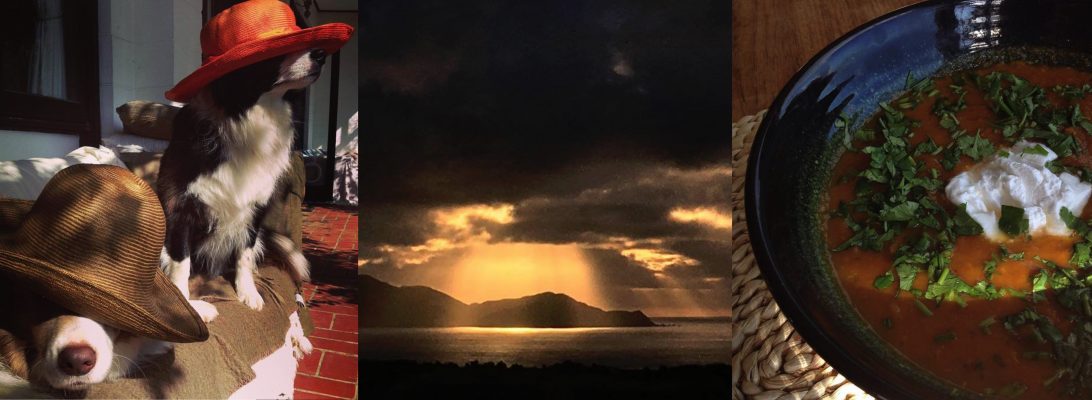I’ve been sitting on this post (or at least the intention to write it) for a couple of weeks. I was hoping to recover sufficiently from a bout of caregiver fatigue in order for my words here to be articulate and lyrical, but on reflection I’m just going to shoot for ‘good enough’.
Let me begin by saying, if you are low on bandwidth, the very short version of this is that if you don’t want to end up like my mother (arguably zero quality of life for the last three years) or me (spending much of my energy running a caregiving ultra marathon with no end in sight) or you want your children to avoid being in my position, I would highly recommend (so highly that if I could I would bust out the best song and dance routine EVER to underline it) an advanced care plan.

Mum is non-verbal. On the very odd occasion I think she might know who I am, but for the most part she doesn’t. She is bed ridden in dynamic air mattress which adjusts the pressure and shape of her bed in order to avoid bed sores. Most of the time she sleeps. She wears a nappy and all her cares – showering, toileting – are managed in bed.
Approximately two years ago, the rest home GP charted a fentanyl patch in response to Mum chomping her top and bottom teeth together, everyday, often for hours at a time, and heavily enough to be loud and quite distressing to observe. Lately, it seemed unclear if this was indeed a pain signal, as she was dosed up on fentanyl. However, as one of the nurses commented, if Mum wasn’t in pain or distress before she started doing chomping, after an hour or so, she likely would be. Consequently if the nurse on duty agreed it was a good idea, they could administer a combination of morphine and midazolam. This required a carer, or a nurse, or me, requesting it.
I made the decision to move Mum from the rest home in the Hutt to Waikanae for two reasons. Firstly, I was tired of driving for two hours (there and back) to visit her, and it meant I was only visiting 1-2 times a week. Secondly, I disagreed with the amount of food Mum was being fed (i.e. often more than I eat in a day), and that she was clearly being woken by a volunteer to be proudly fed every last mouthful. To add to the darkly comedic aspect of this situation, towards the end, it appeared that this elderly volunteer was experiencing her own cognitive decline and was forgetting the instructions not to feed Mum. When I moved Mum to Waikanae, my very clear request was that the staff not wake Mum to be fed, and to give her small meals.
The immensely tricky thing here is Mum did not write down any of her wishes or requests for the end of her life. After she watched her mother die a long, lingering death due to Alzehimer’s and my father die over seven years with Lewy Body dementia, she said to me – many times – “For the love of God, do not let me end up like that.” Watching Granny and Dad deteriorate was so anxiety provoking for her that she doubled down on self medicating life long anxiety with prescription tranquillisers and wine, which resulted in her own alcohol induced dementia.

A month after Mum moved to Waikanae, it became clear that there was disagreement within the nursing staff as to whether Mum’s signals (including chomping her teeth) indicated pain or hunger and/or thirst. Consequently the medical team decided to trial a week of responding, initially, to her agitation with food and fluid, rather than medication. It very quickly became clear that responding with food and fluid made no difference. So day after day, I advocated for Mum. “Hi there, Mum is chomping her teeth. It has been at least twenty minutes. Yes, she has had food and fluid. She is also grimacing. Yes, I’ve waited twenty minutes to see if the behaviour continues.” Sometimes, the nurse would take one look at Mum and instantly go off and get medication. Other times, I had to push. Which was fine until it wasn’t, and I lost my shit with the nurse on duty.
My meltdown followed having to argue with the same nurse three times in less than 24 hours in order to get Mum relief for the chomping and a noticeable escalation of agitation. We went through the same rigmarole of food and fluid + waiting + waiting. I think I managed to NVC (Nonviolent Communication) my way through that interaction so that I was able to express how I was feeling and request clarity rather than make it a judgment of her. I am Mum’s EPOA (power of attorney) and not only have I been actively responsible for her care for 20 years, but I have a legal responsibility to stand in her shoes and advocate for her best interests. I became emotional, raised my voice, and went in search of the clinical manager. The nurse practitioner was consulted and Mum is now on another hospice med called Haliperidol, also for agitation. The new drug is charted to be given routinely to her twice a day rather than on request.
Mum is gradually losing interested in food. During a meeting with the clinical manager, the GP, and the nurse practitioner in early April, it was explained to me that every single dementia patient is different, but around 95% (might have been higher) inevitably get to a point where they simply close their mouth and refuse food or fluid. Mum is not there yet, she doesn’t really want food, but nor is she refusing it. She’ll happily take one mouthful, but then softly close her mouth. However carers are instructed to jiggle a spoonful of food against the patient’s mouth to encourage them to eat. Like you would with a baby. Except Mum is not a growing human, she is dying.
The morning following my meltdown, Adam and I met again with clinical manager for the rest home and were joined by another senior manager, also a nurse. For much of the meeting we talked about the new medication, hospital wing processes and how all of Mum’s nurses and carers are now required to fill in a detailed form after they have attended to her, so the staff learn Mum’s particular signals. To be honest, I don’t really recall much of what was said until I asked the following question “Do you want to end up like this?…” And both women responded, quick as a flash, with a very decisive no. “God no”, one of them replied vehemently “I’ve had my advanced care plan in place since I was forty.”
Everyone has been very clear that there is no intention to prolong her suffering, and yet this is arguably exactly what the system is doing. “I promise you Tink, we’re not trying to prolong her suffering” said the nurse practitioner. Long pause. “And yet here we are” said Adam. No response. The clinical manager said that at the first sign of her refusing food, the treatment plan will change, but until then we wait. I’ve been told it likely won’t be another ten years, but it could be two.
I asked the senior nurse we met with, if she would be willing, after all this is over to meet with me and chat through my own advanced care plan. Her response was don’t wait until this – with Mum – is over. Do it now. None of us know what will happen. Let me also add, in a moment of being very pragmatic, it is also expensive. Just the last three years of no quality of life, have cost us over $200,000. Mum would have been the first to say “God no, darling, pull the plug and go to Italy.” Truly, she would. I’d certainly say that to Adam. Go live, let me go, don’t just stand around watching me die, it’s all so very boring, she would say.
But for now, with Mum, without any advanced care plan we wait.
And I learn.
To be stroppy.
How to recognise non verbal pain and agitation cues – both general and specific to Mum.
The names of pain and anxiety meds.
Exactly the right questions to ask carers, and nurses, and doctors and lawyer.
I learn to ignore, then not even smell, the scent of wee and cabbage.
I learn to ignore the cries and shouts and moans of other patients.
I learn to be genuinely amused by Mum’s neighbour, a distinguished old gentleman who regularly shouts out “Singapore!”
I visit and check Mum is comfortable. I quietly watch her shrink and fade and begin to swallow less well. I light a candle, water the cyclamen I bought for her room and now call her Diana rather Mum because she clearly responds more – in an animal roused from a deep, drugged sleep kind of way – to her given name rather than who she was to me. I talk to Dad. A former doctor who once said to me that he thought the great failing of Western medicine was its non acceptance of death.
Things are a little easier after my shit losing. She is definitely more settled, less agitated. We’re building clearer communication and trust amongst those of us involved in her care. I’m reassured that she is more comfortable. I still have to turn a blind eye to how much food she is still being ‘encouraged’ to eat. But I’m also choosing to pull back. Somewhere in all of this Mum has to have the space to die. I have to let her go.
There has been no shortage of people offering advice…
“Have you told her you love her?” (plot spoiler, yep, repeatedly)
“Have you told her you forgive her?” (plot spoiler, yep, repeatedly)
“Sweetheart, you just have to let go” they say, to which I carefully maintain a neutral facial expression and respond sweetly with “If only it was that easy.” It is not. But now, I think I have to find space for me to live and for her to die.
Maybe, after all this is over, I will look back and see the Glorious Grand Plan in it all. The strange beauty that sits alongside the horror. But in the meantime, you can be sure as hell that I will also – in addition to the emotional, psychological and spiritual navigation – put an advanced care plan in place in order to do my very best to ensure the people who love me don’t have to go through this. |
Again, click here for information on how to create an advanced care plan.














